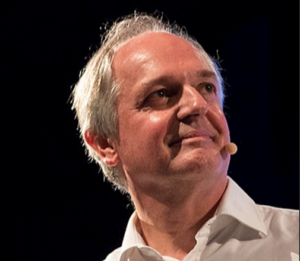In a few weeks, negotiators, politicians, businesses and activists from around the world will descend on Dubai for COP28, this year’s annual global climate summit. The meeting will conclude with the first ever “global stocktake” to assess our progress on tackling climate change.
People are divided about the usefulness of these international meetings. Some write them off as talking shops. Others get their hopes up, and have been repeatedly disappointed when the final text agreed by governments has fallen short.
I try to be pragmatic. No summit is ever going to solve humanity’s planetary problems. But, equally, we currently have no better multilateral mechanism at our disposal to advance collectively on climate, and I believe we need to make the best of what we have. The COP puts a spotlight on our joint efforts. It brings together governments, the private sector, experts, NGOs and journalists, and it builds awareness and relationships, and imposes deadlines. Our challenge is leveraging these plus-points to drive faster action and better change.
One big improvement would be giving young people more opportunity to shape the meeting and its outcomes. I recently read that around 630 oil and gas lobbyists registered to attend last year’s COP in Egypt – almost the same as the number of participants who attended through YOUNGO, the UN’s network of young climate activists. No prizes for guessing which group gets most access to Ministers and other decision-makers.
This picture is all wrong. Who should we trust more with our fate, the fossil fuel industry or the future citizens of the world? Who do we imagine is bringing more fresh-thinking and innovative ideas, a vested order that would keep digging us into this hole, or the young people whose lives and livelihoods literally depend on us getting out?
Yet I keep hearing about young activists who, despite their best efforts, still don’t know if they’ll make it to the UAE. Many are struggling to get conference passes, or can’t afford a room at Dubai rates of up to 300 euros a night. It’s even harder for those from the poorer countries and marginalised communities already bearing the brunt of the climate crisis.
Why isn’t business doing more to help? The COP Presidency has appointed a Minister as the first ever COP Youth Climate Champion, and is explicitly calling on governments to consult with their young citizens, and bring them as part of their official delegations. These are good steps. But we need a much bigger push from the private sector, too. A youth deficit in our climate negotiations is a missed opportunity for us all.
The experiences and contributions these younger activists bring are diverse and important. Many are rightly demanding greater ambition and accountability, including from corporate leaders. They’re often among the most passionate advocates for climate justice, and for developed economies to finally deliver on long-promised funding to nations on the climate front line.
And, bluntly, if older generations keep excluding young citizens from shaping the solutions, those solutions simply aren’t going to stick. Getting the world on a safer trajectory isn’t just about an energy transition. It’s about transforming the systems by which we run our economies and our lives. So, yes, energy, and also how we produce food, how we think about consumption more generally, our relationship with nature, and how we organise our financial system and multilateral institutions. These are big, far-reaching transformations which will require partnership across the generations. It will be no good handing young people a plan they had no part in designing, from a global establishment that’s lost their trust. Far better they are at the table, from now.
Every company can do more. There’s the logistical and financial support for a start. The Schneider Electric Foundation, for instance, is sponsoring delegates through Young European Leadership (YEL). And business can help ensure that those participating can do so in meaningful ways.
I’ve heard young activists trade stories about politicians and CEOs asking them for selfies, while failing to listen to their views. Or jumping at the chance to appear at “youth” branded events, only to disengage as soon as they’re off stage. These young people know when they are being taken seriously, and they know what real partnership looks like. We Are Family Foundation‘s Youth to the Table programme, for example, empowers young leaders to actively take part in global events including COP. Through thoughtful pairings with experienced executives, the delegates are given access to discussions where they learn, and are listened to. They receive training and resources before and after. Unlike conventional mentorship, this kind of collaboration creates more equal and enduring partnerships, understanding that both sides have something to give.
Even if your company is steering clear of COP28, every business can still check-in with its younger employees. It can be difficult for managers to know how to have these sorts of conversations. Force of Nature has produced a guide on hosting youth-led Climate Cafes, which is a good place to start. They’re encouraging organisations to run them around the world on November 30, the day the Summit begins.
So what now? Well, you have a choice. You can close this note and go back to your day. Or you can be the person who gets the ball rolling, so that your organisation steps up to support the young voices we all need in Dubai. My dear friend, the amazing Jane Goodall put it right: “Young people, when informed and empowered, when they realize that what they do truly makes a difference, can indeed change the world.”But they can’t do it alone. It’s up to all of us to work across the generations and bring this brave new alliance to life.



